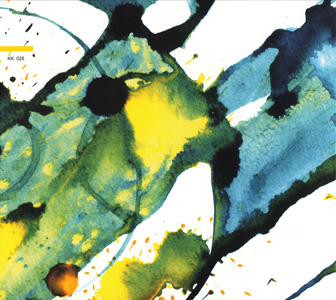 Nao Sugimoto's Spekk label had been doing an excellent job of establishing itself as an excellent source of abstract hybrids of organic and synthetic sounds that were sometimes challenging, sometimes beautiful, but always captivating. Because of that, the label’s disappearance after 2011's Phoenix & Phaedra Holding Patterns album by Janek Schaefer was disheartening. When these two new releases appeared, I was hoping that they would be a return to form, and that they are.
Nao Sugimoto's Spekk label had been doing an excellent job of establishing itself as an excellent source of abstract hybrids of organic and synthetic sounds that were sometimes challenging, sometimes beautiful, but always captivating. Because of that, the label’s disappearance after 2011's Phoenix & Phaedra Holding Patterns album by Janek Schaefer was disheartening. When these two new releases appeared, I was hoping that they would be a return to form, and that they are.
Opitope, the duo of Chihei Hatakeyama and Tomoyoshi Date are responsible for the first of these two new releases, the beautifully organic Physis.Given the wide array of styles both artists work in individually, it was somewhat surprising that throughout the four long pieces the music retains a rather specific, singular focus in approach.While their backgrounds include work in hardcore metal and techno projects, calm organic soundscapes are the predominant theme here.
On "An White Drop of Morning Dew" Hatakeyama and Date do pair two differing styles to one another.Shimmering bits of digital noises trade off with piano and plucked string jazz melodies that, on their own, would be too close to easy listening for my tastes.Thankfully the synthetic sounds provide a strong counterpoint that contrasts, but does not clash with the conventional instrumentation.
The remaining songs use the traditional instrumentation more sparingly, such as the chimes and guitar that do not show up until the latter half of "Light Blue Mist and Ripple", following an expanse of fascinating, but indistinct organic sounds and gentle tones.While "Warmth of Winter Woods" first focuses on overt piano and what sounds like a slowly flowing river, the other layers and passages that appear build to an almost disorienting, complex mix of noises that differ nicely from the peaceful introduction.
samples:
 The second release is from the increasingly less prolific Celer is the single piece Zigzag that has a different, developed approach to Will Long's penchant for ambient space.The most overt difference that is immediately noticeable is that rather than expansive drones, he instead works in the context of a rhythmic bounce dynamic, leading me to believe that the title could possibly be a reference to the waveform view of the piece or the amplification used in the final mix.
The second release is from the increasingly less prolific Celer is the single piece Zigzag that has a different, developed approach to Will Long's penchant for ambient space.The most overt difference that is immediately noticeable is that rather than expansive drones, he instead works in the context of a rhythmic bounce dynamic, leading me to believe that the title could possibly be a reference to the waveform view of the piece or the amplification used in the final mix.
Beyond that, the other striking difference is a heavier use of layering and differing tones and textures throughout the 48 minute duration.The shifting tonal qualities and rhythmic feel adds to this, and even though the dynamics keep things pretty quiet, it never drifts off into the background like similarly sparse, minimalist recordings often do.
Even after its three-year hiatus, the Spekk label still impresses me, and hopefully heralds a return to a consistent release schedule.The only measurable difference is the change in packaging:the distinct, DVD case proportion die cut cardboard sleeves have been replaced with somewhat more conventional cardboard folders.Mildly disappointing, but the music retains the same quality as before, which is the most important part, even if it makes my CD shelves look a bit inconsistent.
samples:
 
Read More

